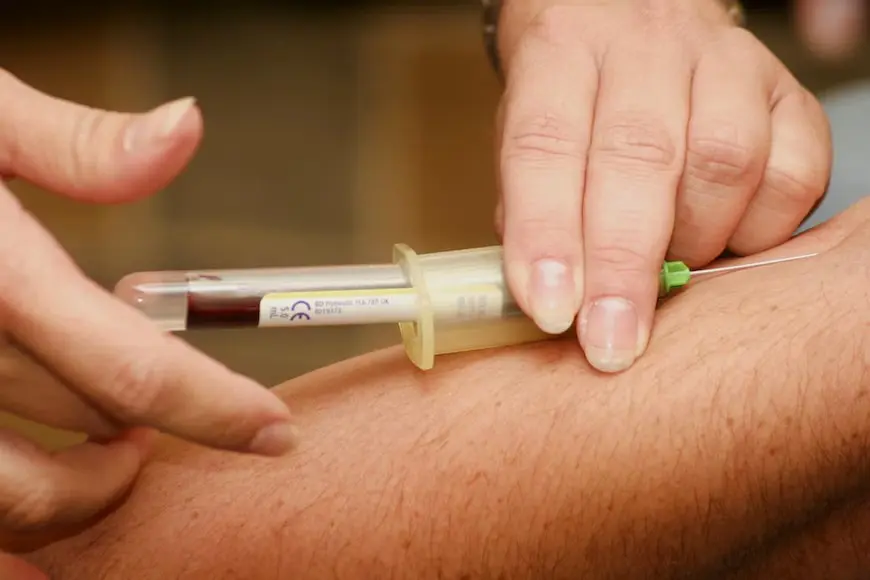Preventive Healthcare
Decoding the Significance of Amylase Test
5903 Views
0

The amylase test is a key component of comprehensive health assessments, primarily focusing on your pancreatic function. Lower than normal amylase levels or high amylase levels can indicate problems ranging from pancreatic disorders to systemic diseases in your body. Therefore, with this comprehensive blog, you will learn about the mysteries surrounding amylase and understand how this test not only elucidates digestive health but also provides a window into potential underlying issues.
What is An Amylase Test?
An amylase test measures the levels of amylase, a digestive enzyme, in your blood or urine. It is a vital marker in diagnostic tests for assessing your pancreatic and digestive system functioning.
What is Amylase?
Amylase is a crucial enzyme that breaks down carbohydrates into simpler sugars during digestion. Produced in your pancreas and salivary glands, this amylase facilitates the absorption of nutrients in your small intestine.
When is An Amylase Test Performed?
An amylase test is performed when pancreatic or digestive problems are suspected. It is commonly prescribed if you are experiencing symptoms like abdominal pain and nausea and is also used to diagnose conditions like pancreatitis.
Who Performs an Amylase Test?
A healthcare provider, such as a general physician or gastroenterologist, prescribes an amylase test. The sample collection, either your blood or urine, is often done by a phlebotomist or a laboratory technician in a clinical setting who ensures precise testing procedures, and interpretation of results.
How Do I Prepare For an Amylase Test?
Preparing for an amylase blood test is usually straightforward.
- Fasting may be required for around 8 hours before a blood test, as eating can temporarily affect amylase levels.
- Inform your healthcare provider about medications, as certain drugs can influence test results.
- Ensure to share your medical history, including recent illnesses or surgeries.
- Wear loose, comfortable clothing to facilitate blood collection.
- Follow any specific instructions provided by your healthcare team.
What Should I Expect During an Amylase Blood Test?
The test process is swift, taking just a few minutes.
- During an amylase blood test, a healthcare professional will use an antiseptic to clean the injection site, usually on your arm.
- A needle is then used to draw a blood sample, causing minimal discomfort.
- After collection, a bandage is carefully applied to the puncture site. This ensures the area remains clean and protected from potential contaminants or infections.
- Ensure you follow any pre-test instructions, such as fasting if required. Results are typically available within a few days.
What Should I Expect During an Amylase Urine Test?
You will receive a sterile container to collect your urine sample during an amylase urine test.
- It is important to follow any specific instructions given by your healthcare provider, such as the timing of the collection. Some tests may require a 24-hour urine collection for a more accurate assessment.
- Communicate any medications, supplements, or recent illnesses to your healthcare provider, as these factors can influence test results.
- Make sure that you collect the sample midstream to enhance accuracy. You should collect all urine during this period and store it as instructed.
- The process is non-invasive and painless. Once the sample is collected, please promptly return it to the healthcare facility. Results are usually available after analysis in a laboratory.
What Should I Expect After an Amylase Test?
If you underwent an amylase blood test, you might have a small bruise at the puncture site, which should fade quickly. Nevertheless, you can resume normal activities after an amylase test.
What Are the Risks of An Amylase Test?
The amylase test is generally safe with minimal risks. The most common risk is slight bruising or tenderness at the blood collection site. In rare cases, some individuals may feel lightheaded or faint during blood collection. Inform your healthcare provider of any allergies or concerns.
When Should I Know the Results of the Amylase Test?
Results of an amylase test are typically available within a few days, depending on the laboratory.
What is the Normal Range For an Amylase Test?
The normal range of amylase levels is 30-110 units per litre (U/L) in adults for blood samples. While in urine samples, the normal amylase levels are 2.6-21.2 international units per hour (IU/h). It is pertinent to note that normal amylase values can vary between laboratories based on the specific reference normal range for amylase levels.
What Does It Mean If Your Amylase is High or Low?
High amylase levels may indicate pancreatic inflammation (pancreatitis), kidney disease, or other conditions affecting your digestive system. Higher than normal amylase levels can also result from alcohol consumption. Conversely, if the values fall below the normal range of amylase levels, it might signify a pancreatic disorder or liver disease. Interpretation of higher or lower than normal range of amylase levels depends on various factors, including your overall health and medical history.
Conclusion
Understanding the significance of amylase tests unveils a wealth of information about your digestive health. Whether derived from blood or urine samples, this test is vital, shedding light on your pancreatic function and potential gastrointestinal disorders. Regular monitoring and interpretation of amylase test results can help you take proactive steps in maintaining digestive health. You can evaluate your pancreatic and digestive health at your convenience with this amylase test from Metropolis Labs, your trusted partner in diagnostics. Experience precision and reliability in your amylase blood and urine tests with our trained phlebotomists in state-of-the-art laboratory facilities. Book your test today!













1701259759.webp)









 WhatsApp
WhatsApp